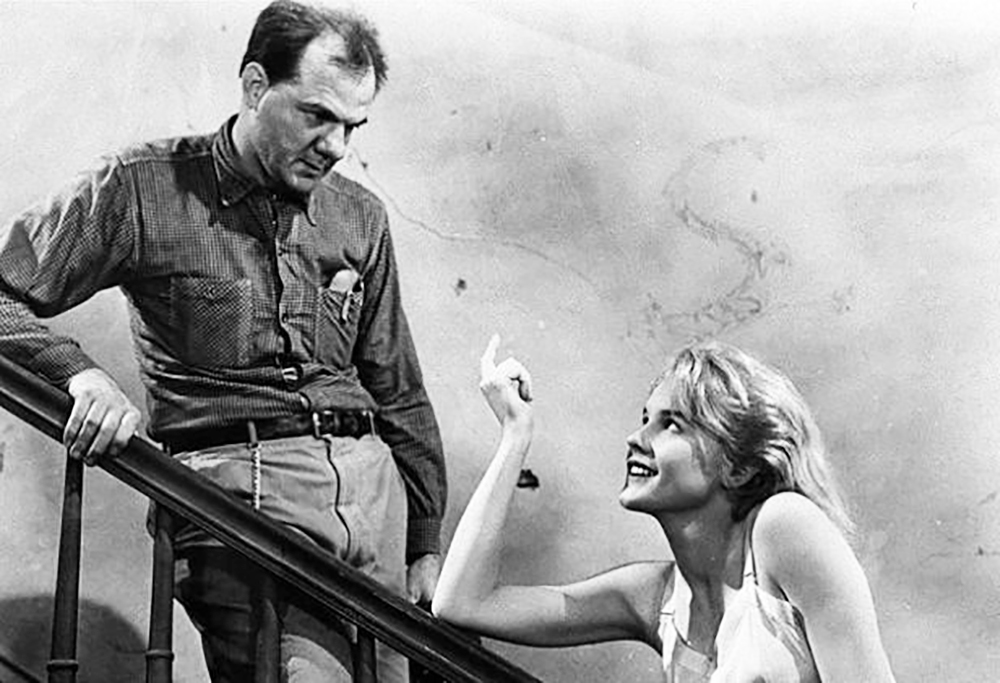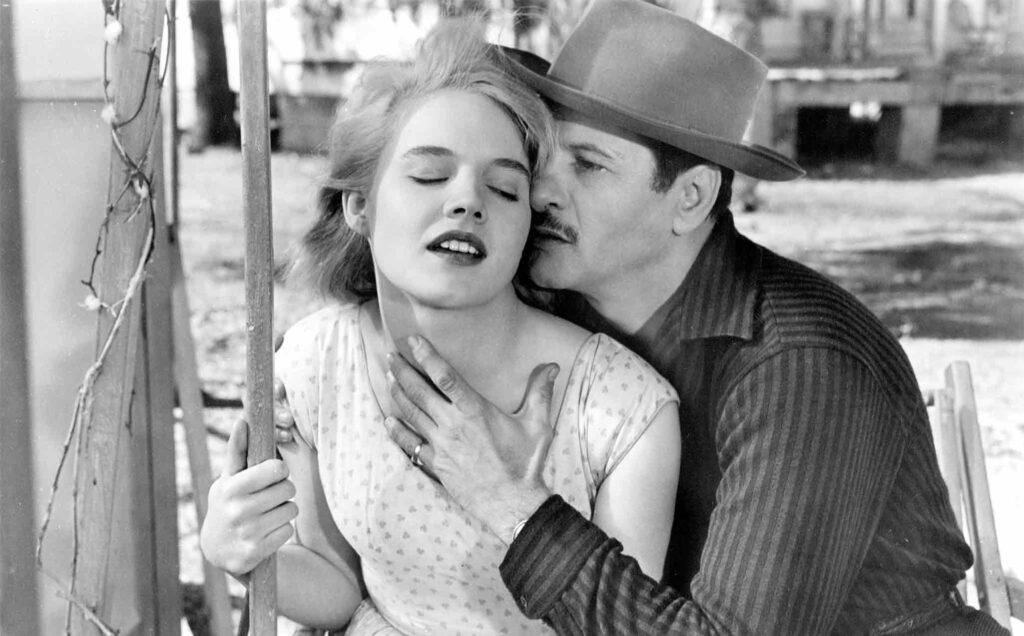As Hollywood began to lose its grip on censorship of sex and violence, more adult, interesting, and transgressive films were produced and released. “Baby Doll” is one of the best and most controversial of those films. It is a masterpiece at every level that was condemned by The Legion for “carnal suggestiveness,” denounced from the pulpit, and dubbed by Time magazine “the dirtiest American-made motion picture that has ever been exhibited.” The furor caused 77% of “Baby Doll’s” bookings to be cancelled, so that few people saw it. Its fierce, short-lived notoriety was followed by forgetfulness and disinterest by all except a few who saw past the hoopla to its genuine merit.

The thing that sets “Baby Doll” at the apex of American cinema is the artistic wholeness and purity of the final product. Director Elia Kazan and actors Carol Baker, Eli Wallach, and Karl Malden all studied or taught at the Actors Studio. They were at the forefront of the new realistic acting technique that is often called ‘The Method.’ This film shows what this “method” can achieve in the hands of great artists, where actors are called on to listen to each other and react from emotional truth. In “Baby Doll,” all the comedy, pathos, “carnal suggestiveness,” etc. emerge from the actors focusing, listening, and feeling each other as they navigate the text and subtext of the plot. Kazan’s final cut could be called method editing, in that he is in sync with what is unfolding on the film rather than imposing a preconceived idea onto the editing process.
“Baby Doll” probably touched such a nerve with the American media, where the equally suggestive “The Seven-Year Itch” (1956) with Marilyn Monroe did not, because Carol Baker as Baby Doll transformed her character from a simple object for the lascivious male gaze of her much older husband to a woman in command of her own sexuality. In contrast, Monroe built her career on a character who was a non-threatening sex bomb that existed as eye candy and male wish-fulfillment, but had no sex drive of her own.
Enough cannot be said about the marvelous performances. Karl Malden carries off broad comedy as the jealous husband who agreed not to sleep with his young wife until her 20th birthday. Eli Wallach, in his first appearance on screen, brings devilry into their household with his smoldering sexuality. He is intent on seeking revenge against the husband for burning his cotton mill, through the wife, little realizing that he is the match to catch Baby Doll’s nascent sensuality on fire.
After you watch “Baby Doll,” it would be interesting to compare it to the less controversial “The Seven-Year Itch.” Also, compare and contrast it to “Lolita” (1962), based on Vladimir Nabokov’s novel. “Lolita” and “Baby Doll” both illuminate the way young women can be objectified, and their road to awakening.


